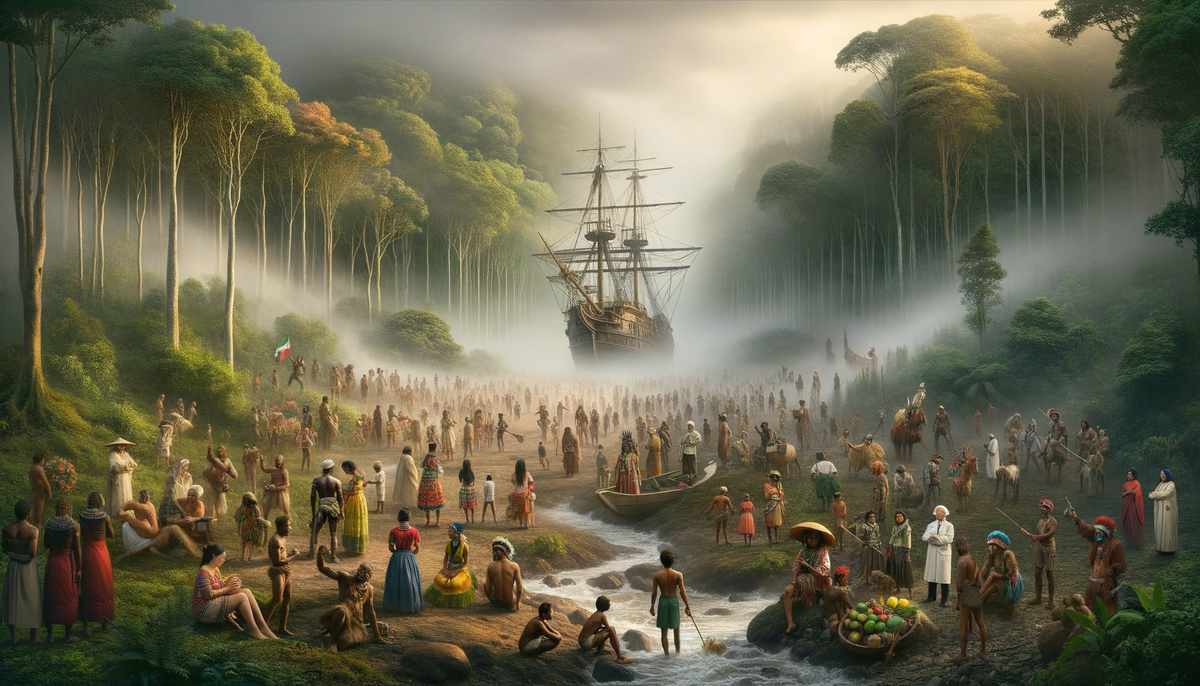The Impact of Colonial Rule on Indigenous Forest Communities
Discover how colonial rule transformed the lives, economies, and environments of indigenous forest communities, disrupting their harmony with nature.

The Impact of Colonial Rule on Indigenous Forest Communities
Introduction
Imagine living at one with nature, your family depending on the forest for food, medicine, and shelter. This was the life of many indigenous forest communities before the wave of colonialism altered their world dramatically. As an archaeologist and history enthusiast, I've always been fascinated by how such a drastic change could impact these societies. Let's embark on a journey to understand how colonial rule affected indigenous forest communities.
Pre-Colonial Life
Before the arrival of colonial powers, indigenous communities developed a harmonious relationship with their surroundings. They possessed an intricate knowledge of the flora and fauna, using sustainable methods to harvest resources. Their economies were based on barter systems, social hierarchies were minimal, and communities supported one another.
Colonial Intrusion
Everything changed with the encroachment of European colonists, who viewed these lush green terrains as potential revenue sources. Forests were cleared to make way for plantations, and new tax systems were imposed. This disrupted the indigenous way of life. Suddenly, the forest was not just a home but a commodity that could be exploited for profit.
Economic Disruption
Colonial authorities introduced cash crops such as tea, coffee, and rubber, replacing the rich biodiversity that had sustained local populations for centuries. Indigenous communities were often forced to work on these plantations under harsh conditions, separated from their traditional livelihoods and practices. Educational resources like English Chatterbox can provide deeper insights into the economic shifts and societal changes during this period.
Social Disintegration
Colonial policies also had a significant social impact. Traditional leadership structures were undermined, and communities were fragmented. The imposition of foreign laws and cultures eroded indigenous practices and belief systems. As a result, many community members found themselves alienated from their cultural roots.
Environmental Degradation
The consequences of colonialism were not just human-centric; the environment suffered immensely as well. Extensive deforestation led to soil erosion, loss of biodiversity, and altered climate patterns. The sustainable practices of the indigenous people gave way to the exploitative approach of the colonists.
Conclusion
The history of colonialism is a poignant reminder of how external forces can disrupt age-old traditions, economies, and communities. As we reflect on the impact of colonial rule on indigenous forest communities, it’s crucial to remember the resilience of these groups. Many have fought to preserve their heritage, and their stories are vital for shaping our understanding of sustainable living and community-oriented economies.
Delving into this history is more than an academic exercise; it offers lessons applicable to today’s world, reminding us of the importance of respecting and preserving the knowledge and traditions of indigenous communities.



